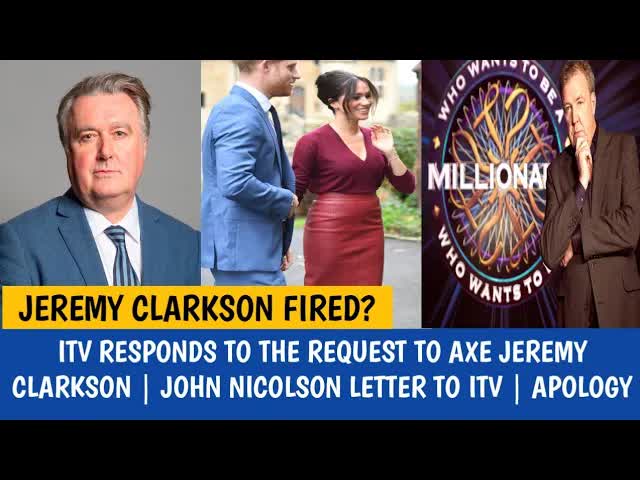In a surprising turn of events, Jeremy Clarkson’s recent remarks about Meghan Markle have ignited a firestorm of backlash, resulting in an unprecedented 17,500 complaints lodged against a newspaper article.
This staggering number has set a new record, eclipsing the previous high of 14,355 complaints made in 2021.
What does this surge in grievances reveal?
It suggests that the public is increasingly willing to voice their discontent over media treatment of individuals, particularly when it comes to the relentless trolling faced by Meghan.
Many observers believe that the tide is turning against the media’s harsh scrutiny of Meghan, especially following the release of her docuseries.
The sentiment is clear: people are beginning to recognize that Meghan, who has been candid about her struggles with mental health, does not deserve the vitriol aimed at her.
After all, how can anyone justify subjecting a person to such relentless negativity, especially someone who has openly shared her experiences of contemplating suicide due to the pressure?
As the fallout from Clarkson’s comments continues, calls for his removal from ITV’s “Who Wants to Be a Millionaire?”
are growing louder.
Viewers are demanding accountability, and many feel that Clarkson’s statements, which suggested Meghan should be publicly shamed, are unacceptable.
Despite the mounting pressure, ITV announced that Clarkson will remain as host for now, leaving many bewildered.
How can a network continue to support someone who has made such disparaging remarks about a woman who has endured so much?
The situation raises serious questions about the ethics of media representation.
It seems unjust for Clarkson to retain his position while having made comments that many perceive as harmful and dehumanizing.
The public outcry underscores a broader demand for respect and dignity in media portrayals, especially for individuals like Meghan who have already faced significant challenges.
Critics have pointed out that Clarkson’s comparison of Meghan to notorious figures, including a serial killer, is not only misguided but also deeply offensive.
Such comparisons trivialize the real issues at hand and further perpetuate a culture of hatred.
High-profile figures, including members of Parliament and even Clarkson’s own daughter, have condemned his remarks, indicating a widespread consensus that his comments crossed a serious line.
Scottish National Party MP John Nicholson has taken action by writing to ITV’s chief executive, urging the network to reconsider Clarkson’s role.
He emphasized that allowing Clarkson to remain on air sends the wrong message about media accountability and the treatment of women.
It’s crucial for media outlets to recognize their responsibility in shaping public discourse and to stand against harmful rhetoric.
The royal family’s silence throughout this ordeal has also drawn criticism.
Despite the overwhelming support Meghan received from various public figures in the past, including 72 MPs who defended her against media attacks in 2019, the royal family has remained conspicuously quiet.
This lack of support speaks volumes about their priorities and raises questions about their commitment to protecting Meghan from ongoing harassment.
Voices from the public and media commentators alike have highlighted the need for a cultural shift in how women, particularly those in the spotlight, are treated.
As Vodaman aptly pointed out, the normalization of violent rhetoric against women must be challenged.
It is vital for society to collectively reject such attitudes and demand better from public figures and media personalities.
In light of the backlash, Clarkson attempted to address the situation with a statement that many have deemed insufficient.
His vague acknowledgment of causing hurt, framed as an apology, was met with skepticism.
Critics argue that he failed to take full responsibility for his words, instead focusing on the backlash rather than the impact of his comments on Meghan.
As the debate rages on, the question remains: what does it take for media figures to be held accountable for their words?
The public is clearly demanding change, and it’s essential for companies like ITV and Amazon to listen.
The message is clear—tolerance for hate speech and derogatory comments about women must end.
The ongoing saga surrounding Jeremy Clarkson and Meghan Markle serves as a reminder of the power of public opinion in shaping media narratives.
It’s a call to action for all of us to stand up against injustice and support those who are unfairly targeted.
As we continue to advocate for empathy and respect in our media landscape, let’s hope for a future where everyone is treated with dignity, regardless of their public persona.










